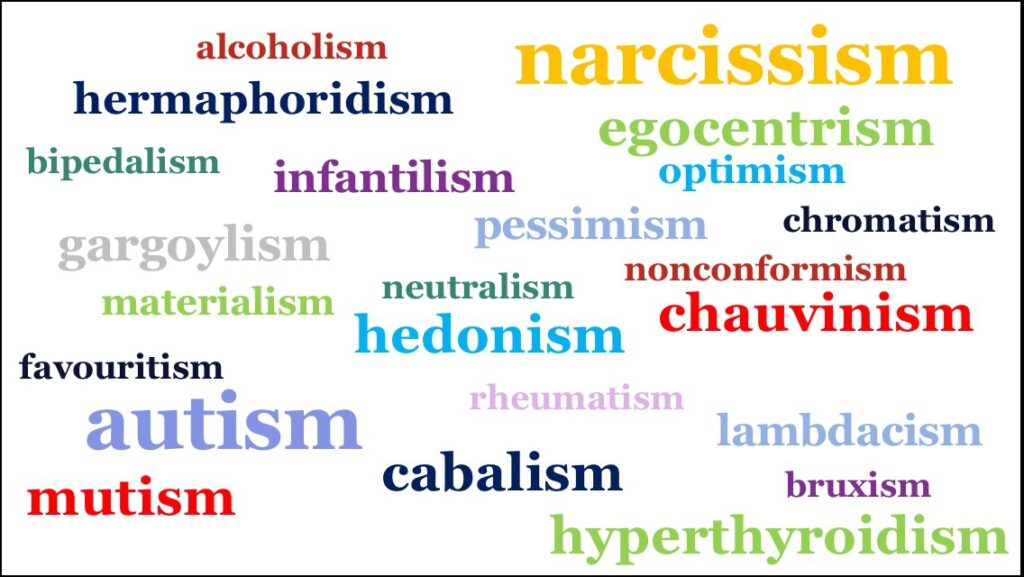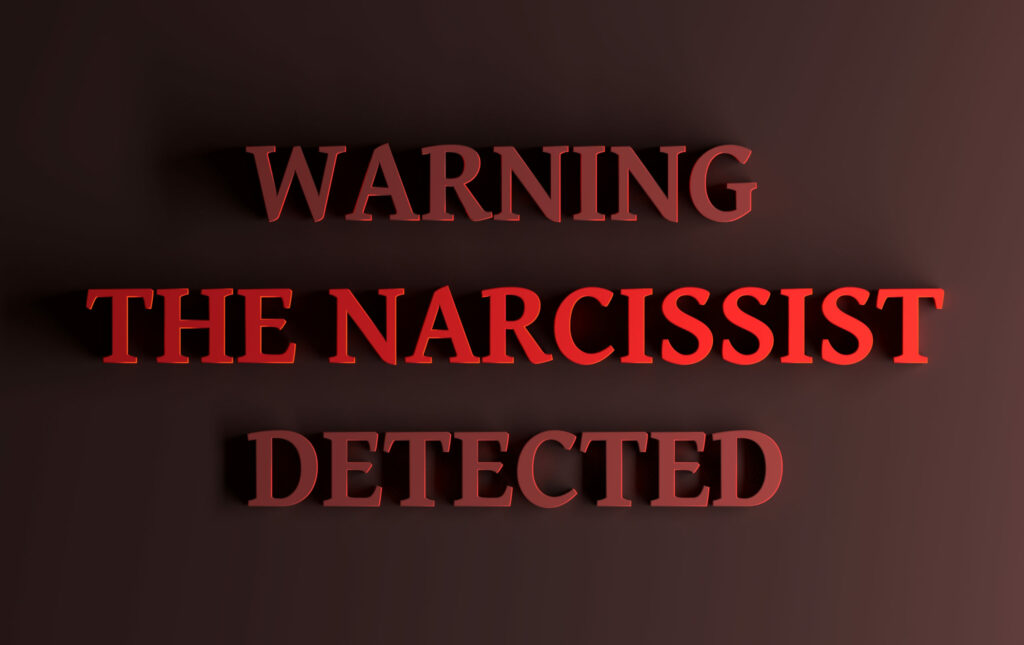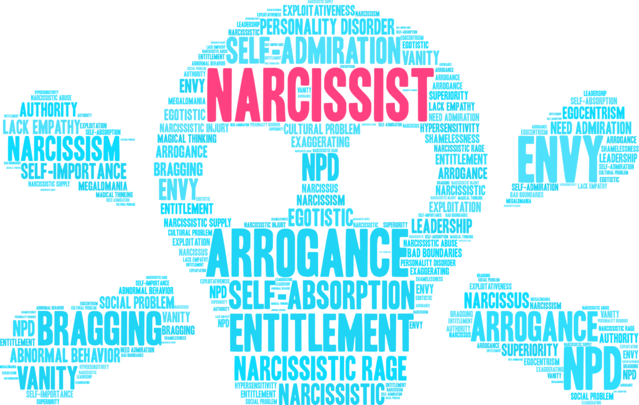The awareness about narcissism and personality types and traits is ever rising in recent years. Sometimes it’s for fun, people take quizzes about personality types, and sometimes it’s to measure the compatibility factor between partners. There are a variety of tests and quizzes available online to help individuals with finding their personality traits and types. But many times personality types can be sadly mistaken for personality disorders.
Contents
What Is Narcissism?

While some people consider personality as a culmination of an individual’s inherited traits, the environment of upbringing, life experiences, present surroundings, acquired knowledge, etc. It makes an individual unique and causes him to think, behave or feel in a certain way. But personality disorders are on a whole different tangent than that of personality or personality types. Personality disorders are problematic patterns of thoughts and behavior that were long withstanding enough to cause disturbances in one’s personality and lifestyle including relationships and work life. And they often can impair an individual’s ability to navigate through his daily life that can lead to severe distress and maladjustment. And usually, the personality of an individual remains quite consistent for longer periods until he goes through a major life change.
The most recent version of the Diagnostic and Statistical Manual of Mental Disorders (DSM-5) categorizes 10 types of diagnosable personality disorders. One of them is a narcissistic personality disorder.
According to the American Psychiatric Association, “Narcissistic personality disorder is a pattern of need for admiration and lack of empathy for others. A person with a narcissistic personality disorder may have a grandiose sense of self-importance, a sense of entitlement, take advantage of others or lack empathy.”
Difference Between Narcissistic Personality Disorder And Narcissism

There are numerous inaccurate sources of information that surround this particular topic. The first is a confusing narcissistic personality disorder with narcissism, which is not a mental illness in itself and instead is more of a personality type. Both the terms apply interchangeably, especially in popular culture. But they certainly possess their differences. For example, a narcissistic personality disorder is a mental illness that requires a proper clinical diagnosis from a professional psychologist or psychiatrist whereas narcissism is more of a personality trait characterized by a sense of grandiosity about self, lack of empathy, narcissistic rage, etc. These qualities of a narcissist can be way too similar to those of a person suffering from a narcissistic personality disorder, which makes it exceedingly difficult but all the more important to differentiate between the two.
Psychologists use different tests to aid them in drawing a clinical diagnosis for this particular personality disorder namely personality diagnostic questionnaire-4 (PDQ-4), million clinical multiaxial inventory III (MCMI-III), international personality disorder examination (IPDE).
Similarly, a variety of psychological tests and quizzes are available to detect narcissistic traits in an individual’s personality and these are not to be confused with a diagnosis. An individual can possess several narcissistic personality traits but still can’t be said to have a narcissistic personality disorder.
Notably, not everyone who may have narcissistic personality traits is likely to develop narcissistic personality disorder in the near future. There’s no scientific evidence whatsoever available that correlates having narcissistic personality traits to developing narcissistic personality disorder later in life.
How To Identify A ‘Narcissist’?

Although it is not an easy task to particularly tell a narcissist apart from the rest of the people, they most certainly do have some qualities that might help someone to identify a narcissist apart from the crowd. Narcissists are often characterized as self-centered people, lack empathy, are selfish, and need constant attention and validation. It is also discovered that they have fragile egos which first results in fear of rejection and then perfectionism. Narcissists are known for being manipulative and they may also gaslight others to get what they want.
They can often come across as extremely confident and arrogant beings but beneath this facade lies their insecurities and fears. They on most occasions seem not to have the ability to form close and intimate relationships. And this inability can be rooted in the fear of being rejected for the flaws and imperfections they might have as individuals. It is also a notable concern that in many instances an individual with narcissistic personality traits may not even be aware of this conundrum himself. And due to the lack of empathy in the narcissistic individual, he also doesn’t seem to grasp the effects that his selfish behavior might have on other individuals in his surroundings. And in this way, it is almost a cyclical process that may hinder the growth and improvement of the individual. Narcissists cannot self reflect and that seems to explain
So, if you’re wondering that you may be a narcissist yourself, chances are that you’re probably not one because narcissists usually tend to be very self-centered they believe that there’s nothing wrong with them, and they often even consider themselves to be special. They see themselves as individuals with a positive attitude and high moral grounds.
10 Toxic Traits Of A Narcissist

Lack of empathy
Narcissists are utterly incapable of showing any compassion for other people. And often are devoid of any empathy whatsoever. This trait, if observed, can help in the identification of a narcissist.
Inflated sense of self
It means that narcissists have a sense of grandiosity about themselves. They can’t fathom the fact they are more or less similar to other individuals. They consider themselves to be someone very special.
Inability to be vulnerable
Vulnerability can be a sore topic for narcissists because deep down they carry fragile ego and self-esteem. It may sound very counterintuitive but narcissists do have insecurities rooted in the sense of guilt, shame and fear of rejection, which makes them avoid vulnerability.
Manipulative
Narcissists are known to be manipulative. They use a variety of manipulative tactics such as emotional abuse, gaslighting etc. to take advantage of the vulnerable to fulfill their malicious agenda to attain power and entitlement. They like to be in a position of control and controlling other people gives them a sense of power.
Sense of entitlement
Entitlement is a major reason behind the malicious acts of a narcissist. They consider themselves to be worthy of respect regardless of whether they’ve earned it or not.
They use nasty maneuvers to fulfill their desires to attain power and admiration, which they may think are their rights. Also, they consider themselves to be superior in comparison to other individuals.
Extreme sensitivity to criticism
Narcissists can’t handle even a small criticism towards themselves. This extreme sensitivity towards criticism seems to be deep-rooted in the sense to be incompetent, having fragile self-esteem and many unresolved insecurities. They easily get offended.
It’s always about them
People with narcissistic traits are considered distinguished to be exceedingly selfish and egotistical. Any and every conversation they might have will always be either centered or redirected towards themselves.
Incompetence to self reflect
Did you know that research shows that narcissists usually seek treatment for anxiety, depression etc? Their incompetence to reflect upon their actions, thoughts and emotions make it quite difficult for them to be able to seek treatment. They don’t seem to understand that they might need help to deal with their narcissistic traits because they usually see themselves either as positive and accomplished individuals or as victims.
Excessive need for attention and validation
Narcissists thrive on external attention and validation. But even when you provide them with the validation they so desperately need, it is never enough for them. They are insecure beings with fragile egos that need constant stroking and it may take a toll on your mental health because they always seem to want more.
Inability to form close relationships
To form strong and close relationships one must need to show empathy and vulnerability. Both are the things a narcissist usually lacks. So it is not surprising that they are not capable of forming close and long-lasting relationships. The life of a narcissist revolves only around them and it is almost impossible for them to do something that is not entirely selfish.
Types of Narcissism

Narcissism still very much remains a controversial topic. People often misunderstand narcissism types and use them interchangeably. This causes further confusion and misinformation. Usually, types of narcissism can be classified based on dominant narcissistic traits. Narcissists are everywhere and we may deal with narcissists often in our day-to-day lives without even being aware of it. It is extremely important to be aware of the type of narcissist that you’re dealing with. Because narcissists rarely care if they are harming other people. It is also noteworthy that manipulative tactics and abusing people emotionally fit the bill for a narcissist and may not seem like a wrongly done deed. So understanding the major types of narcissists can provide you with significant insights into what will be the safest course to take when you find yourself dealing with a narcissist in your life.
Here are a few major types of narcissists that may help to take back the reins from the narcissistic abusers.
Overt or grandiose narcissist
The major trait of an overt or grandiose narcissist is boasting. They can be people in positions of power and public figures. They often strike one as charming but are categorically attention seekers, obnoxious, exploitative, self-entitled, and aggressive. Also, they usually charm their way into people’s lives to fulfill their agenda. Their obsession with themselves is often displayed out in the open and one of the major reasons for this might be their craving for external attention and validation.
A covert or vulnerable narcissist
This type of narcissism is a bit more obscure than the rest. In contrast with their grandiose kin, they avoid attention because they have a rather fragile sense of self-esteem. They are plagued by hypersensitivity, neuroticism, guilt, shame, which makes them extremely sensitive to criticism. They often come across as victims who seek attention in the form of pity from other people but they don’t try aggressive means to meet their agenda.
Seductive narcissist
The tactic of a seductive narcissist, more often than not, is flattery. They will show you kindness and admiration as long as they need you to fulfil their agenda. And when they no longer need you to stroke their egos, they will most likely dump you for a new target.
Communal narcissist
People with communal narcissism want to be warm, caring, and kind individuals. But there is no scarcity of selfishness in their actions. This desire to become a person who cares for the community develops roots in their distorted worldview and sense of superiority over other individuals. They aim to achieve a profound position and want to come across as generous and friendly individuals. But they lack empathy and hide their original motives.
Malignant narcissist
This is the most dangerous type of narcissism. People with malignant narcissism are completely devoid of any sense of empathy. They are extremely manipulative, controlling, and exploitative. They rarely feel any guilt or remorse and enjoy causing pain to their victims. It gives them a sense of power and control as well. Their victims often are family, colleagues, friends, etc. They often see the world in black and white resulting in an ‘either with me or against me’ attitude towards people as well as life situations.
What To Do When You Encounter A Narcissist?

- Educate yourself about the personality type: Some people are quick to judge, criticize and dismiss others based on their preconceived notions of what they think they know. You might get a low score for people skills if you are friends with someone. You can learn more about yourself though by talking to strangers. However, you cannot measure some things objectively but are rather the product of one’s subjective experience.
- Set healthy boundaries: You know what is best for you. You can decide what you want and don’t want in your life and who you want to include and exclude from it. This doesn’t mean you have to be a hermit, but everyone needs their own space (maybe that’s why introverts get along so well with cats).
- Look for psychological support: You can get therapy or coaching that will help you with self-acceptance, goal setting, and stress management. You can also find support groups, books, and articles that will help you grow. Everyone has doubts, fears, and obstacles they need to overcome.
- Understand that you’re not at fault: You didn’t do anything wrong. You never asked to be misunderstood and you certainly did not ask for this living situation. You are doing your best given the circumstances, which is more than most people can say. The only thing you need to change is how you react to what’s going on around you.
- Seek immediate legal help if someone threatens or abuses: Everyone’s safety is important. If you are threatened by your parents or anyone else, it needs to be reported right away. You can call the police or file a complaint with your local Child Protection Authority office.
How To Overcome Narcissistic Traits?

Seek professional help and join a support group
Narcissists are masters of lies, manipulation, and deception. They often portray themselves as victims when in fact they are criminals. Some people who have done bad things will still say that other people are trying to hurt them. No matter how much evidence is present, narcissists will insist on their own reality and impose it upon others. In some cases, people may try to change what happened in order to make themselves look better.
Get out of yourself
Narcissists are addicted to their own feelings. They often feel victimized by other people. Even though they don’t always show empathy towards others, they still expect the rest of the world to empathize with them. If you talk to narcissists, they will suck up your time and attention. They will want you to listen to their latest problem.
Normally, the family members are the first victims. Narcissists may try to make you feel sorry for them because of their life circumstances. They will blame other people for ruining their lives. They won’t take responsibility for all that they have done wrong.
Be in the present moment
It can be difficult for survivors of narcissistic abuse to focus on the present. They may experience flashbacks or intrusive thoughts. This makes it hard for them to concentrate on what is going on now.
People who are suffering from trauma because of narcissism need support and validation. This can come from friends, family members, and mental health professionals. It can also come from joining a survivor support group. These groups might make you feel very sad, but they can also help people who are in trauma due to narcissism.
Practice self-love
Normally, people who love themselves don’t go around manipulating other people. They take responsibility for their own actions and don’t try to blame others. It would be a good idea for survivors of narcissistic abuse to learn how to practice self-love. They can look at old photographs that remind them about why they matter in the universe.
Once they have learned how to love themselves, survivors of narcissistic abuse can have a healthier way of living. They won’t have to keep their painful memories locked away inside of them. Instead, they can let these memories out and work through the trauma that happened to them.
Start taking responsibility for your actions
If a narcissist is manipulating you, it’s time to start taking responsibility for your actions. This doesn’t mean that you should apologize for something that other people did wrong. Instead, it means looking at yourself and figuring out what changes need to happen in order for you to get your life back on track.
Don’t revert to old patterns
Narcissists want their victims to suffer. They revert to old patterns as a way of making sure that other people are miserable. These manipulative tactics may have been used against you before, but it doesn’t mean that you should let them happen again. Very often, people will keep giving narcissists what they want just so that they can avoid getting hurt.
See yourself as a human being capable of making mistakes
Most people are human beings. We all make mistakes, but that doesn’t mean that we should come to an eternity of suffering. If you’re in a narcissistic relationship, it can feel like you’re in a trap because you’ve made so many mistakes.
If someone has hurt you repeatedly, it may seem impossible for you to get out of an abusive relationship. At some point, you need to recognize that your abuser is the only one who deserves punishment. You don’t deserve to feel like a bad person because of their bad behavior.
Learn how to respect yourself
Respecting other people doesn’t mean that you should let them treat you badly. A narcissist will seek out a vulnerable person and make them feel sorry for them. They will get other people to take responsibility for their actions.
If someone doesn’t take responsibility for their bad behavior, it might be time to stop being friends with them. You deserve better from your life and the abuse needs to stop.
Conclusion
The root of narcissism is the need for self-love and high esteem. This is a result of insecurity, which leads to an overcompensation in order to feel good about oneself. Understanding narcissism will help you better communicate with those who exhibit narcissistic tendencies, whether they are coworkers or customers. Even though we may not agree on all points, understanding each other’s perspectives will provide us both with more information that can lead to solutions and success! Let’s work together towards these goals by continuing our discussion here – What does your manager do when he/she sees someone exhibiting narcissistic behaviors?
If you are looking for affordable Online Counseling MantraCare can help: Book a trial therapy session


